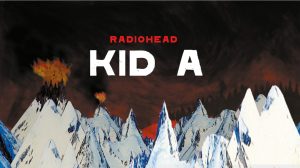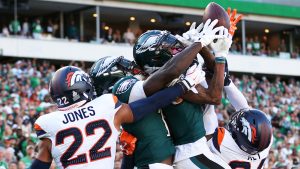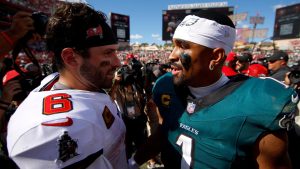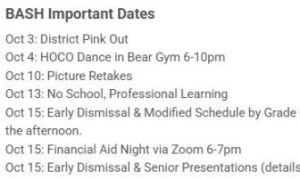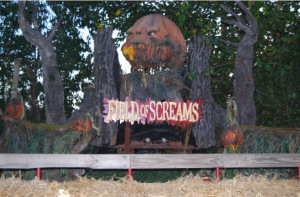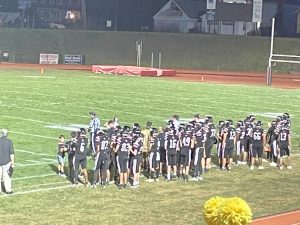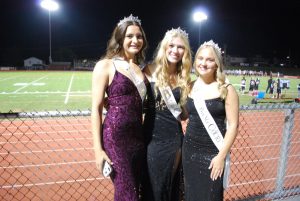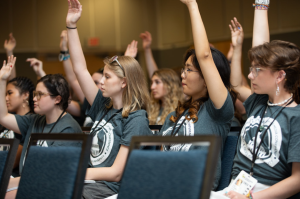From the Editor: On the recent American political revolution
From the Editor is a biweekly collection of thoughts from Editor-in-Chief Harrison Otto about life, politics, or whatever comes to mind
OK — this is the last time I’m writing about the election, then I’m done.
In an unexpected turn of events, and probably one of the most stunning elections in American history, Donald J. Trump has been elected the President of the United States. The businessman, the entertainer, the man who months ago nobody took seriously, somehow pulled off an electoral victory against a candidate who has years of experience and influence in Washington. Now, the country is more divided than ever before. And as Hillary supporters take to the streets in protest, others stand baffled — wondering how Trump can possibly lead the United States for the next four years.
So, how did Trump manage to do it? All the polls were wrong. The media was wrong. The data and statistics were wrong. Almost everybody was wrong. Hillary Clinton was supposed to be our 45th president, but things didn’t go according to plan.
Trump owes a huge part of his victory to the group that he has been appealing to since he started campaigning: the white working class. Many of these voters live in the Rust Belt (the region straddling the upper North-Eastern United States and the Great Lakes that has suffered economic and industrial decline), which used to be the heartland of American manufacturing. Many people in the region are looking for someone to help jumpstart their economy after most of the old factories shut down years ago.
Trump was not expected to win states like Wisconsin and Pennsylvania, which were part of Clinton’s Blue Wall: states in the Rust Belt that have went Democrat in elections for decades. Experts called Trump crazy when he went to those places to campaign, especially Detroit, where Hillary was expected to take the easy win. Well that didn’t happen, and all those workers who heard Trump’s message of economic growth and American greatness turned up to vote.
Hillary underperformed in the urban areas that she needed in order to win, and Trump overperformed — even taking enough urban votes to diminish Clinton’s majority in key battleground states like Florida and North Carolina.
In addition, demographics won this election for Trump, not party allegiance like one would’ve thought. Most polls were inaccurate because most Trump supporters were not represented. While many Trump supporters voiced their opinion strongly, many more middle class voters were afraid to say they agreed with Trump or simply don’t trust the media and refuse to take part in polls. So, while Trump received an unexpected number of voters, Clinton’s base, meaning blacks, Latinos, and educated women, did not turn out enough for Democrats to carry key states.
Trump surprised us. Apparently, there were enough middle class Americans that are fed up with Washington, fed up with government and its convoluted tax laws and ineffective social programs, and most of all fed up with the corruption. And to the silent majority that Trump pulled out, Hillary Clinton represented all of that, despite her experience and progressive message.
The outcome of this election, however, will go down in American history as one of the most important — a political earthquake, if you will. Not only was it a complete shock, but Trump completely redefined what it means to run for president. Here is a man with no political experience who now has the won the office. Many Trump hopefuls are comparing him to former President Ronald Reagan, who did serve as governor of California, but also for years was a well-known actor.
I’m not going to speculate about whether or not Trump is going to be a bad president (that would be another argument for another time), but I will say that this is the outcome of the democratic election — within America’s rules and procedures, the country has spoken.
Not only was Trump’s run itself unconventional, but it might shift American politics in a entirely new direction. Trump’s campaign was not simply Republicans voting for Republicans — it was a populist movement of citizens who wanted change. His ascension to the White House along with the Republican victory in congressional elections mean that his party has complete control right from the start. Paul Ryan, Mitch McConnell, and other Republicans will have the unique opportunity to pass conservative legislation and policy without the fear of a veto from the president.
There’s no doubt that that the last week has been confusing and upsetting for many Americans — and some people have a right to have fear or be uncertain about the future. However, the truth is that Trump will take office in January. So, Americans should at least give him the chance to lead. I didn’t really support Trump during the election, but I’m keeping an open mind. Trump was elected fair and square by the electoral college, and he deserves some respect for that.
Either way, this election proves that politics is more than what most thought. It’s more than just data, polls, and complicated policy concepts that no one really understands. Politics is about people too — and it seems that Trump knew that crucial fact.
They say change is the only constant, and I have to agree. Trump’s campaign was about change from the very beginning, and now it’s time to see if he can keep that promise. Don’t forget, we did not elect a king. America is more than its president, it is rather the product of its citizens. It is the product of us, our talents, our thoughts and opinions, our likes and dislikes, and our hopes and dreams. Unfortunately, the constant hate and division that has recently fell over the nation prevents any chances of healing or moving forward. If anything, this is a time when everybody, whether for Trump or Hillary, needs to find peace after the last turbulent 8 months.
For the past 240 years, this has been a country of the people, by the people, and for the people — and if Americans can learn to come together despite political differences, I have no doubt that it will remain as such.
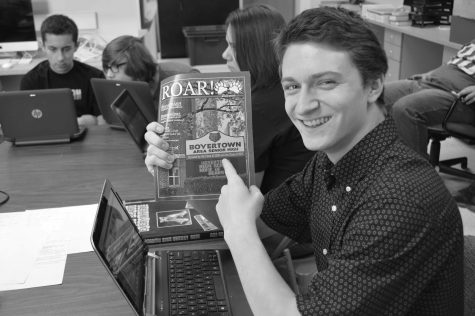
Harrison Otto is a senior, and is serving as the Cub Editor-in-Chief for the second year in a row. He is the Class of 2017 Treasurer, member of the YMCA...
